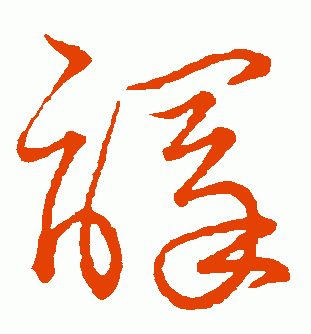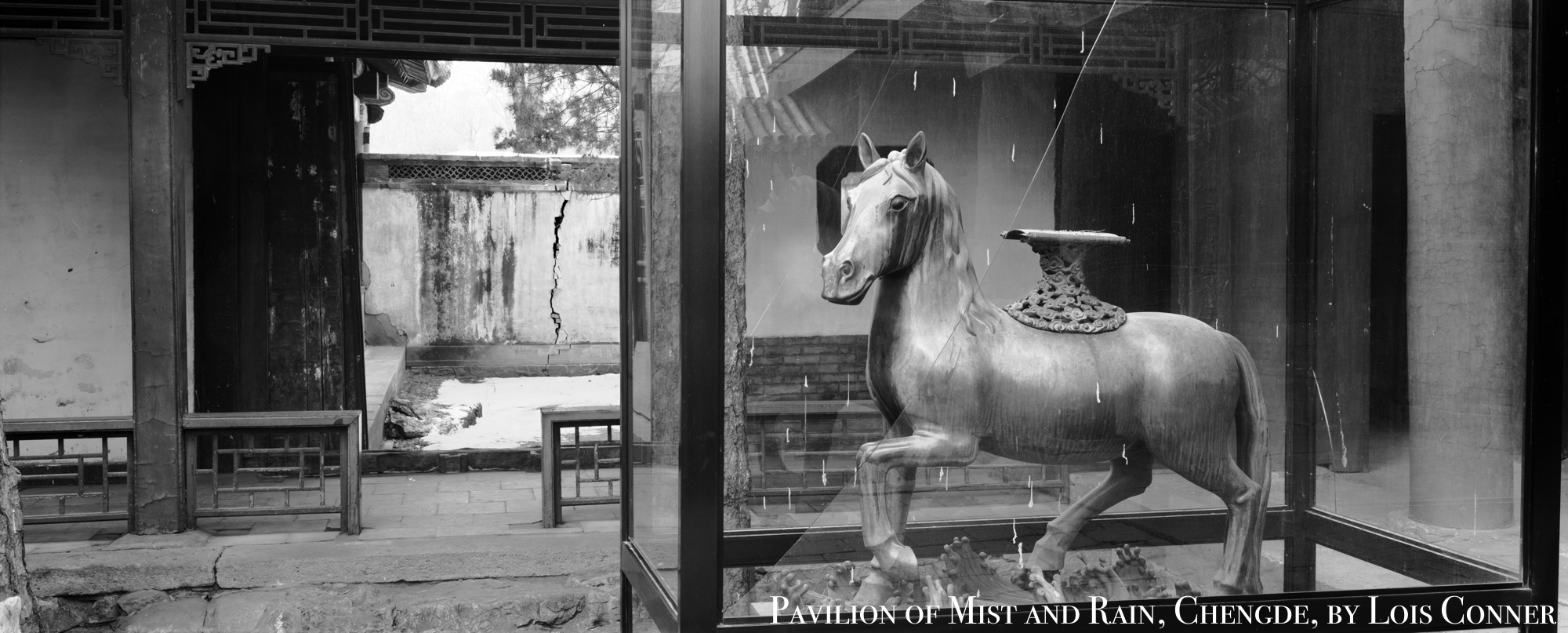John Minford has provided the notes (class handout) for the Introductory Lecture in his series of talks under the title ‘On Culture & Translation’, previously published in China Heritage. The notes are reproduced below; a PDF version can be downloaded here.
***

In February and March 2016, John Minford, co-founder of The Wairarapa Academy for New Sinology and a leading translator of literary Chinese, presented ‘On Culture and Translation’, a series of five public lectures at the Hang Seng Management College 恒生管理學院 in Hong Kong where he is Sin Wai Kin Honorary Professor of Translation and Culture 冼為堅榮譽教授 (中國文化與翻譯) in the School of Translation.
In his lectures John traces a lineage of leading British interpreters of Chinese literature and thought by focussing on four translators: James Legge, Herbert Giles, Arthur Waley and David Hawkes. The Introductory Lecture featured below addresses the broad topic of Culture and Translation and the nurturing of the literary or cultivated mind, what in Chinese is known as xiūyǎng 修養, or, in French, formation. This is a subject that we will continue to consider in China Heritage.
John extols translators and their role in world civilisation as Warriors of Light. His overview of these four great translators whose work spans one and a-half centuries offers readers an insight into a little-appreciated Lineage of Light, one that remains vital for the appreciation and understanding of the Chinese world.
Following the Introductory Lecture, we will publish the YouTube video recordings of John’s ‘Four Lectures on Four Translators’, with accompanying Lecture Notes in PDF format. The lectures will also be included in The Wairarapa Talks, one of the Projects of China Heritage. The Wairarapa Talks are recorded and/or transcribed lectures, speeches and lessons presented in various formats and at various locales by members of the Academy. Over time, The Wairarapa Talks will also recommend lectures by non-Academy writers and scholars.
— Geremie R. Barmé, Editor, China Heritage, 18 May 2017
- Introductory Lecture: Culture & Translation, Video
- Introductory Lecture: Culture & Translation, Handout
Formation, Bildung, Self-cultivation for Translators
John Minford, Thursday 18 February 2016, 3:00 pm
Hang Seng Management College Talks on Culture & Translation
Themes
Translation for Culture
How translation feeds into and across the world’s cultures, the lifeblood enabling understanding between cultures.Culture for Translation
How culture — cultural literacy, cultural resonance, self-cultivation — feed into the practice of translation.
***
My four Saturday-evening public lectures this year [February-March 2016] will look at four examples of great translators from Chinese, what I call the ‘British Lineage’, and will draw from them lessons that we as translators, teachers and students, can learn.
What I am advocating for us all is the humanistic, liberal tradition of translation, based on a grounding in world culture, on an openness to the study of culture and literature. Over thirty years ago, I said more or less the same to a meeting of the Hong Kong Psychological Society:
Can we devise a translation curriculum for Chinese students that will grapple with this problem of cultural understanding? — Bulletin of the Hong Kong Psychological Society, July 1985, p.49.
In 2002, I also wrote a year-long course for the Open University of Hong Kong on this very subject. I am happy to return to that theme today.
Formation. I have recently come to call this humanistic approach to translation training by the wonderful French term formation, a broad-based and thorough approach to education and training.
Basic Questions
What is translation? What is culture? Some thoughts:
Translation is the meshing of two different world images, of two different patterns of human life. — George Steiner, After Babel (1975)
Translation is a form of cultural travel, the transmission and transfusion of culture, of experience, of life. To be able to do this, the translator must swim in the sea of other cultures, must taste their flavour 趣味, must live and breathe it.
This exploration is the adventure of translation:
Translators [of the Elizabethan age] went about their work with the same ambitions [as the explorers], discovering new realms of literature, and bringing home new treasures of human thought. — Theodore Savory, The Art of Translation (1968), p.40.
In the same way that the surgeon, operating on the heart, cannot neglect the body that surrounds it, so the translator treats the text in isolation from its culture at his peril. — Susan Bassett-McGuire, Translation Studies (1980), p.14.
English literature lives on translation, it is fed by translation; every new age is stimulated by translation, every allegedly quiet age is an age of translation. — Ezra Pound
The Realms of Gold
On First Looking into Chapman’s Homer by John Keats (1795-1821)
Much have I travell’d in the realms of gold,
And many goodly states and kingdoms seen;
Round many western islands have I been
Which bards in fealty to Apollo hold.
Oft of one wide expanse had I been told
That deep-brow’d Homer ruled as his demesne;
Yet did I never breathe its pure serene
Till I heard Chapman speak out loud and bold:
Then felt I like some watcher of the skies
When a new planet swims into his ken;
Or like stout Cortez when with eagle eyes
He star’d at the Pacific — and all his men
Look’d at each other with a wild surmise —
Silent, upon a peak in Darien.
What are some of the cultural references in this poem?
— Homer, the Iliad, the Odyssey, Chapman, the translator
—Herschel, the discovery in 1781 of a new planet Uranus; Cortes and the Spanish discovery of South America
— Other roots of Western Culture: Socrates, Plato, Aristotle, Jesus Christ.
Lineages of Translation
What is a lineage, and how is it connected to the concept of self-cultivation or formation? The role of the teacher (e.g., Confucius), the master and apprentice, as in Peking Opera. It is a Tao 道, it is kungfu 功夫, thorough training and practice. ‘Go home and translate.’
- The Jesuit Lineage
- The Oxford Lineage
- A Chinese Lineage: Balzac & Fou Lei
- The German Lineage & Richard Wilhelm
The Tao of Translation
Formation, Self-cultivation, 修養, 功夫. Fou Lei 傅雷, dedicated translator, giving advice in the 1950s to his pianist son Fou Ts’ong 傅聰 wrote:
I hope that now you can sustain your general level of self-cultivation; if you do, I have no doubt that you will soon reach the summit. One can clearly sense from the recording that you have matured in every way; your true artistic purpose has finally emerged, something I’ve been hoping to see for many years. I am so happy. I place more importance on this than on anything else. That you can now master an entire piece of music shows that your art has gained in depth, that your artistic soul has grown stronger and more expansive, and that your whole personality and outlook have broadened.
— 傅雷家書
As I add in a note to this passage, Self-cultivation, xiūyǎng 修養, is the process that has been at the heart of all Chinese philosophy, ever since the very early classic the I Ching or Book of Change. It forms the core of the traditional Chinese art of life, and is the means by which the individual can attain harmony with the Tao, with the underlying spirit of the cosmos.
Bildung is a similar term, linked to the German tradition of self-cultivation, a process of both personal and cultural maturation. This maturation is described as a harmonization of the individual’s mind and heart and a unification of selfhood and identity within broader society. It involves the shaping of the human being with regard to his/her own humanity as well as his/her innate intellectual skills. It refers to a process of becoming that can be related to Existentialism, a lifelong process of human development, rather than mere training in the acquisition of certain external knowledge or skills. It is a process wherein an individual’s spiritual and cultural sensibilities as well as personal and social skills are in the process of continual growth. Bildung is seen as a way to attain greater freedom through a higher level of self-reflection.
The Ultimate Aspirations of Translation
This may all sound rather daunting. But it is actually a source of the greatest pleasure and enrichment, because translation, like any art, is part of the mystery of transformation, and of the life-giving communion between human hearts and minds. 人同此心,心同此理。It makes the world a more healthy and liveable place. In the words of the poet Walter de la Mare (1873-1956):
In a wider sense, all human experience, all communication between humans, is translation. Only by insight and by divination can we pierce inward to the citadel of the mind and soul [of another person]. We can only translate their touch, their gestures, words they use, the changing looks on their faces into terms of our own consciousness and spirit.
— from Desert Islands

